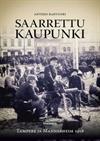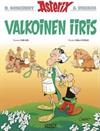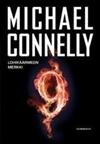
Eisenhower: The White House Years
1 journaler for this copy...
8 stars: Very good
From the back cover: America's 34th president was belittled by his critics as the babysitter in chief. This new book reveals how wrong they were Dwight Eisenhower was bequeathed the atomic bomb and refused to use it. He ground down Joseph McCarthy and McCarthyism until both became, as he said, "McCarthywasism". He stimulated the economy to lift it from recession., built an interstate highway system, and turned an 8Billion deficit in 1953 into a $500 million surplus in 1960. Ike was the last president until Bill Clinton to leave his country in the black.
The President Eisenhower of popular imagination is a benign figure, armed with a putter, a winning smile, and little else. The Eisenhower of Jim Newton's rendering is shrewd, sentimental, and tempestuous. He mourned the death of his first son and doted on his grandchildren but could, one aide recalled, "peel the varnish off a desk" with his temper. Mocked as shallow and inarticulate, he was in fact a meticulous manager. Admired as a general, he was a champion of peace. In Korea and Vietnam, in Quemoy and Berlin, his generals urged him to wage nuclear war. Time and again he considered the idea and rejected it. And it was Eisenhower who appointed the liberal justices Earl Warren and William Brennan and who then called in the military to enforce desegregation in schools.
-------------
I first read Jim Newton's biography on Earl Warren, after hearing his speak at the Festival of Books. At fest, he mentioned that authoring the Warren book piqued his interest in Eisenhower, so he then tackled that subject next. I'm glad he did. I had little knowledge of the man, the president, or even more than his name as general.
I loved how the book was structured. A pet peeve of mine in biographies, is taking 300 pages to even get to the event/ time period that I as the reader am interested in. Not this book. Newton immediately names 8 people who were main influences: "...the lessons from his mother, the patience of his wife, the gallantry of George Patton, the patient tutoring of Fox Conner, the negative example of Douglas MacArthur, the serene leadership of George Marshall, and the wise political tutelage of Herbert Brownell." Newton then spends approximately 50 pages covering Eisenhower's life and relationships with the above 8 people, until we land at his decision to run for office. This was a tight, informative section which provided me the insight into the character to read the rest of the biography---without bogging me down with every meeting, anecdote and dinner conversation of the first 50 years of his life.
Some quotes I wanted to remember:
[Running against Adlai Stevenson] "Ike's friend George Allen felt Stevenson's inexperience in the area of foreign affairs and his intellectual distance from America's working people. He was stirring, yes, but also aloof and cerebral. For Stevenson, the campaign was an opportunity to educate; for Eisenhower, it was a battle to win. So while Stevenson formed arguments and theses, Ike turned to short advertisements and jingles. It struck some as trite, but by election day no adult American had not heard "I like Ike". The 1952 campaign not only created a winner; it changed the character of American politics."
In the height of McCarthyism, Eisenhower gave a speech at Dartmouth. This was his first public censure. of McCarthy. "Near the end of his speech, however, Eisenhower departed from his text. 'Don't join the book burners. Don't think you are going to conceal faults by concealing evidence that they ever existed. Don't be afraid to go in your library and read every book as long as any book does not offend your sense of decency. That should be the only censorship'."
From the famous "military industrial complex" speech: "Every gun that is made, every warship launched, every rocket fired, signifies, in the final sense, a theft from those who hunger and are not fed, those who are cold and are not clothed. This world in arms is not spending money alone. It is spending the sweat of its laborers, the genius of its scientists, the hopes of its children. The cost of one modern heavy bomber is this: a modern brick school in more than 30 cities. It is two electric power plants, each serving a town of 60,000. It is two fine, fully equipped hospitals. It is some 50 miles of concrete highway. We pay for a single fighter plane with a half million bushels of wheat. We pay for a single destroyer with new homes that could have housed more than 8,000 people."
Proposal to the UN: "The nuclear nations, he suggested should each make contributions of uranium and fissionable material to a UN agency, which would then apply that material to problems of agriculture, medicine and other peaceful activities. The argument for such a sharing of material was two fold: it would apply the fruits of development to peaceful purposes, and it would shrink the global supply of fissionable material available for destruction. It was a genuinely new idea in the still-nascent politics of the Cold War, through which Eisenhower was improvising a fragile peace. Morever, it reflected Ike's delicate triangulation of the conflict's forces: American defense, Soviet containment, and the thread of nuclear war."
"Faced with the awesome implications of the Soviet Union's ability to wage nuclear war, Eisenhower changed. The nuclear enthusiast of 1953 had become a more sober leader by 1956. .. Ike was haunted by images of wrecked society across Europe and America, of the Northern hemisphere so damaged it would "virtually cease to exist". He began to question the meaning of military victory in the modern world. Even as his top advisers planned for small nuclear wars in which America would use tactical weapons to contain Communist expansion, Eisenhower veered in the opposite direction. Military leaders were often appalled by his new approach, but he had nothing to prove to them. "
[when Khrushchev visited the US]. "Eisenhower urged Khrushchev to enjoy the American people and appreciate their commitment to peace, their disinterest in world domination. 'I assure you they have no ill will toward any other people, that they covet no territory, no additional power. Nor do they seek to interfere in the internal affairs of any other nation. I most sincerely hope that as you come to see and believe these truths about our people there will develop an improved basis on which we can together consider the problems that divide us'."
[Upon his imminent departure from office]. "During my entire life, until I came back from WWII as something of a VIP, I was known by my contemporaries as 'Ike'. Whether or not the deep friendships I enjoy have had their beginnings in the ante or post-war period, I now demand, as my right, that you, starting January 21, 1961, address me by that nickname. No longer do I propose to be excluded from the privileges that other friends enjoy."
In the acknowledgements section, Newton discusses the myriad news reports, published transcripts, and much more, of the era. He goes on to discuss the Oppenheimer letters and McCarthy transcripts. He says "Devotion to chronicling society in all its serious complexity was an article of faith for American society in all its serious complexity was an article of faith... the stewards of American journalism at its apex understood that it was expensive and difficult, that it was a job for serious, seasoned people, not amateurs, poseurs, or profiteers. They spent lavishly and constructed a vital business as well as a sustaining culture. It is a lesson that no engaged citizen should forget but that sadly, many have."
From the back cover: America's 34th president was belittled by his critics as the babysitter in chief. This new book reveals how wrong they were Dwight Eisenhower was bequeathed the atomic bomb and refused to use it. He ground down Joseph McCarthy and McCarthyism until both became, as he said, "McCarthywasism". He stimulated the economy to lift it from recession., built an interstate highway system, and turned an 8Billion deficit in 1953 into a $500 million surplus in 1960. Ike was the last president until Bill Clinton to leave his country in the black.
The President Eisenhower of popular imagination is a benign figure, armed with a putter, a winning smile, and little else. The Eisenhower of Jim Newton's rendering is shrewd, sentimental, and tempestuous. He mourned the death of his first son and doted on his grandchildren but could, one aide recalled, "peel the varnish off a desk" with his temper. Mocked as shallow and inarticulate, he was in fact a meticulous manager. Admired as a general, he was a champion of peace. In Korea and Vietnam, in Quemoy and Berlin, his generals urged him to wage nuclear war. Time and again he considered the idea and rejected it. And it was Eisenhower who appointed the liberal justices Earl Warren and William Brennan and who then called in the military to enforce desegregation in schools.
-------------
I first read Jim Newton's biography on Earl Warren, after hearing his speak at the Festival of Books. At fest, he mentioned that authoring the Warren book piqued his interest in Eisenhower, so he then tackled that subject next. I'm glad he did. I had little knowledge of the man, the president, or even more than his name as general.
I loved how the book was structured. A pet peeve of mine in biographies, is taking 300 pages to even get to the event/ time period that I as the reader am interested in. Not this book. Newton immediately names 8 people who were main influences: "...the lessons from his mother, the patience of his wife, the gallantry of George Patton, the patient tutoring of Fox Conner, the negative example of Douglas MacArthur, the serene leadership of George Marshall, and the wise political tutelage of Herbert Brownell." Newton then spends approximately 50 pages covering Eisenhower's life and relationships with the above 8 people, until we land at his decision to run for office. This was a tight, informative section which provided me the insight into the character to read the rest of the biography---without bogging me down with every meeting, anecdote and dinner conversation of the first 50 years of his life.
Some quotes I wanted to remember:
[Running against Adlai Stevenson] "Ike's friend George Allen felt Stevenson's inexperience in the area of foreign affairs and his intellectual distance from America's working people. He was stirring, yes, but also aloof and cerebral. For Stevenson, the campaign was an opportunity to educate; for Eisenhower, it was a battle to win. So while Stevenson formed arguments and theses, Ike turned to short advertisements and jingles. It struck some as trite, but by election day no adult American had not heard "I like Ike". The 1952 campaign not only created a winner; it changed the character of American politics."
In the height of McCarthyism, Eisenhower gave a speech at Dartmouth. This was his first public censure. of McCarthy. "Near the end of his speech, however, Eisenhower departed from his text. 'Don't join the book burners. Don't think you are going to conceal faults by concealing evidence that they ever existed. Don't be afraid to go in your library and read every book as long as any book does not offend your sense of decency. That should be the only censorship'."
From the famous "military industrial complex" speech: "Every gun that is made, every warship launched, every rocket fired, signifies, in the final sense, a theft from those who hunger and are not fed, those who are cold and are not clothed. This world in arms is not spending money alone. It is spending the sweat of its laborers, the genius of its scientists, the hopes of its children. The cost of one modern heavy bomber is this: a modern brick school in more than 30 cities. It is two electric power plants, each serving a town of 60,000. It is two fine, fully equipped hospitals. It is some 50 miles of concrete highway. We pay for a single fighter plane with a half million bushels of wheat. We pay for a single destroyer with new homes that could have housed more than 8,000 people."
Proposal to the UN: "The nuclear nations, he suggested should each make contributions of uranium and fissionable material to a UN agency, which would then apply that material to problems of agriculture, medicine and other peaceful activities. The argument for such a sharing of material was two fold: it would apply the fruits of development to peaceful purposes, and it would shrink the global supply of fissionable material available for destruction. It was a genuinely new idea in the still-nascent politics of the Cold War, through which Eisenhower was improvising a fragile peace. Morever, it reflected Ike's delicate triangulation of the conflict's forces: American defense, Soviet containment, and the thread of nuclear war."
"Faced with the awesome implications of the Soviet Union's ability to wage nuclear war, Eisenhower changed. The nuclear enthusiast of 1953 had become a more sober leader by 1956. .. Ike was haunted by images of wrecked society across Europe and America, of the Northern hemisphere so damaged it would "virtually cease to exist". He began to question the meaning of military victory in the modern world. Even as his top advisers planned for small nuclear wars in which America would use tactical weapons to contain Communist expansion, Eisenhower veered in the opposite direction. Military leaders were often appalled by his new approach, but he had nothing to prove to them. "
[when Khrushchev visited the US]. "Eisenhower urged Khrushchev to enjoy the American people and appreciate their commitment to peace, their disinterest in world domination. 'I assure you they have no ill will toward any other people, that they covet no territory, no additional power. Nor do they seek to interfere in the internal affairs of any other nation. I most sincerely hope that as you come to see and believe these truths about our people there will develop an improved basis on which we can together consider the problems that divide us'."
[Upon his imminent departure from office]. "During my entire life, until I came back from WWII as something of a VIP, I was known by my contemporaries as 'Ike'. Whether or not the deep friendships I enjoy have had their beginnings in the ante or post-war period, I now demand, as my right, that you, starting January 21, 1961, address me by that nickname. No longer do I propose to be excluded from the privileges that other friends enjoy."
In the acknowledgements section, Newton discusses the myriad news reports, published transcripts, and much more, of the era. He goes on to discuss the Oppenheimer letters and McCarthy transcripts. He says "Devotion to chronicling society in all its serious complexity was an article of faith for American society in all its serious complexity was an article of faith... the stewards of American journalism at its apex understood that it was expensive and difficult, that it was a job for serious, seasoned people, not amateurs, poseurs, or profiteers. They spent lavishly and constructed a vital business as well as a sustaining culture. It is a lesson that no engaged citizen should forget but that sadly, many have."













